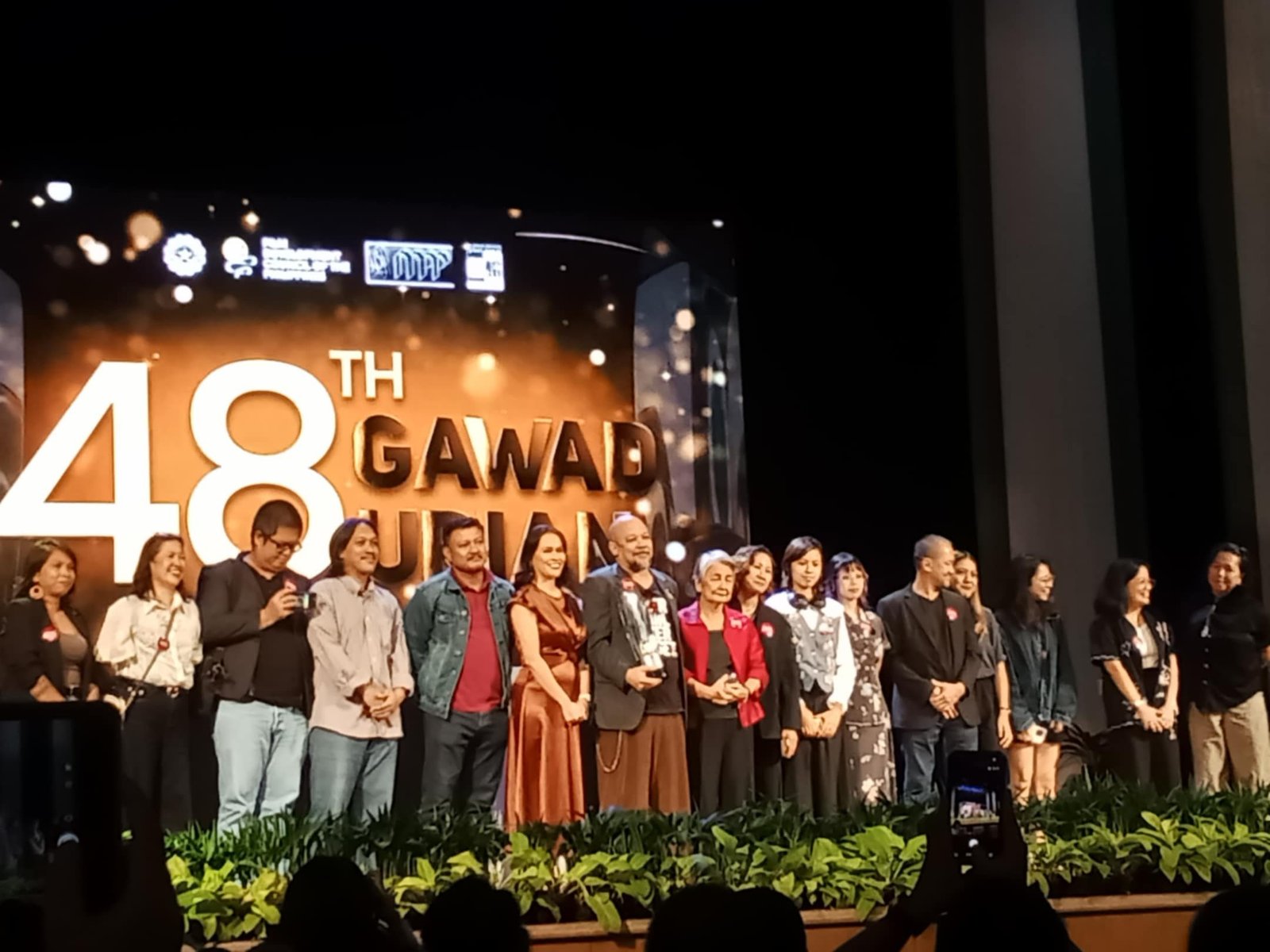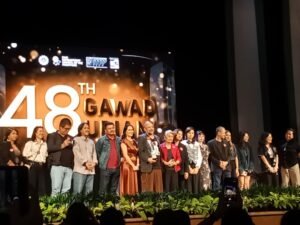Tino Borja, known by his moniker T-NO, had been working in music for as long as I’ve been alive. At 40, he marks his 20th year as a professional music producer. Even before that, at 14, he cut his teeth as a club deejay in his hometown, Hamburg, Germany.
We meet at the Astbury, a hip membership co-working space in Makati. T-NO had a conference room for a day of meetings. Donning a beige outfit, Nikes, a baseball cap, and tattoos, he greets me with a firm handshake. In the meeting room is a sensible feast: coffee, juice, seared tuna, and a chickpea salad. “Hope that’s okay with you. I don’t eat meat,” he tells me, but I was happy. Not every interview comes with a meal.
We immediately start chopping it up about R&B classics and the vigor of crate-digging. We might occupy different quadrants in local music, but music nerds are music nerds. It isn’t hard to fall into a rhythm. T-NO’s go-to karaoke song is “Anak” by Freddie Aguilar, a gargantuan hit. He’s eager to share that it’s the most widely translated local song. I’m just as enthusiastic to share that it was adapted into a 2000 film starring Vilma Santos and Claudine Barretto.
T-NO takes pride in his Filipino heritage, a trait that spills over in his musicality. Not only does a number of his hits sample Manila Sound classics, but his compositions swell with emotion. In “Du Bist Nicht Allein,” a 2011 track with German rap and R&B artist Emory, sine waves quickly crescendo over a guitar riff and over the words (translated to English) “Baby, you don’t have to be alone.” In his own words, his sound is defined by “melodies that touch the heart,” and through his music project, T-NO likes to pay tribute to the shoulders he stands on.
One of his favorite compositions, a collaboration with German artist Teesy, shares its name with D’Angelo’s “Untitled.” Like its namesake, soulful keys and basslines roll over a sparse drum beat as Teesy belts out over a lost love. The song replicates the atmosphere of the original’s “How Does it Feel?” with subtle, meaningful flourishes that stand out among the relatively minimal composition: piercing guitar licks, a string section, and church organs to keep the piano company.

T-NO is a third culture kid born to a German mother and a Filipino father in his hometown of Nettelnburg in Hamburg, Germany. However, he never strayed far from his Filipino roots. He spent his childhood nestled within Hamburg’s immigrant community, describing a strong sense of solidarity among people of color.
“There was just an… unspoken segregation between us and white folk. It was kind of ‘us vs. them,’” he says. Still, his mother had a deep affinity for the Filipino community, which is exactly where he fell in love with music. It was a colorful upbringing soundtracked by the likes of Marvin Gaye, Regine Velasquez, and the Teenage Mutant Ninja Turtles soundtrack. This was the late ‘80s to early ‘90s, when hip-hop was fairly new and at the forefront of pop culture. He wanted to be a part of it all. T-NO recalls watching DJs scratch records on TV. As a child, he once tried it out himself at home. “I totally ruined my mom’s vinyl collection,” he tells me.
Then he picked up the actual skills in his teens. T-NO spent most of his late adolescence DJing at nightclubs, using a cousin’s ID to bypass the bouncer and put on records that would define his future sound. “I had a blast. I can’t imagine my childhood going any other way.” T-NO’s early life was defined by karaoke nights with his barkada, cookouts, and parties. A constant exposure to music equipped him with the sensibility to understand what made a song great. He quickly joined a hip-hop crew and picked up music production. In 2005, armed with little but MIDI notes and a dream at 20, he released his very first track using only a Windows desktop, a keyboard, and a drum machine — not far from today’s “bedroom musician” setup.
“We just create our own thing. Maybe that’s also one reason why I’ve never worked corporate. If I fail, I fail because of me.”
T-NO
This is what T-NO calls the “trial and error phase” — sinking hours into the studio, and admittedly, slacking off from school. Things pick up from there, and T-NO lands a few key collaborations with rap groups like Superego. He started his own independent label, Tracksetters Entertainment, with friends who are rappers, singers, producers, designers, and businessmen. Two years later, he officially registers the company and drops out of college. That’s where he decides, it’s music or nothing.
“We just create our own thing. Maybe that’s also one reason why I’ve never worked corporate. If I fail, I fail because of me.” T-NO kept a day job at an audio dealership all while T-NO and the Tracksetters inched closer to breakout success. Luckily, the studio was only three minutes away. He’d sometimes go straight to work from the studio and vice versa. Suddenly, he found himself in the same room as the biggest names in German R&B and hip-hop. It was at that point where things felt so much more tangible.
The Tracksetters continued to operate despite having to part ways with a few key personalities. One of the singers, Teesy, quickly gains recognition, and the Tracksetters become a true household name in Germany. They’re signed to the major label BMG Rights Management, and relocated to Berlin around the 2010s. To T-NO, one of the most pivotal moments in his career is performing on national television with Teesy on Bundevision. “My phone never stopped ringing,” he says. “I mean, those are the kinds of moments where even my parents were saying, ‘Hmmm, maybe he’s doing the right thing.’”
Read the rest of the story in the Arts and Culture issue of Rolling Stone Philippines. Pre-order a copy on Sari-Sari Shopping, or read the e-magazine now here.











